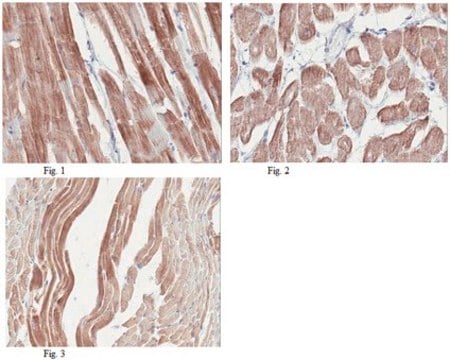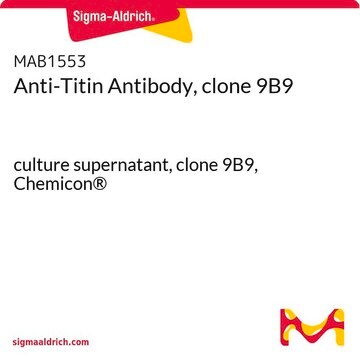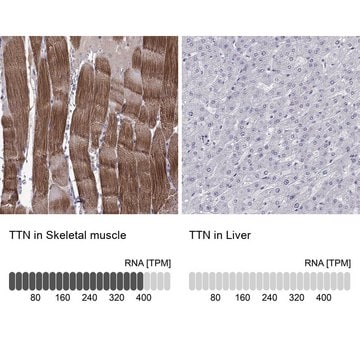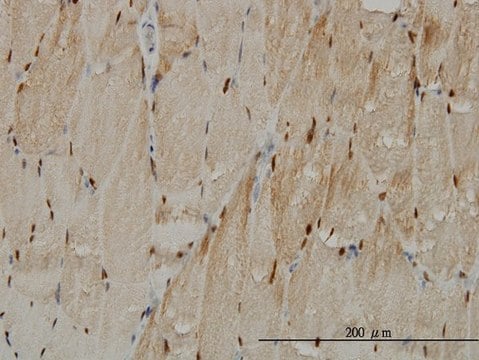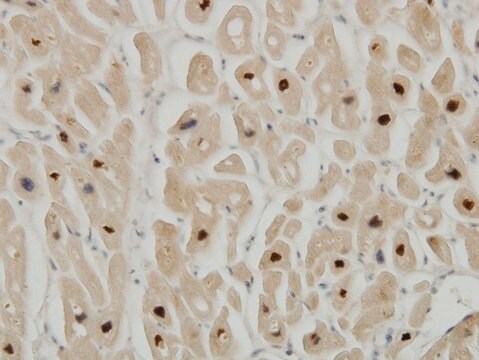T9030
Monoclonal Anti-Titin antibody produced in mouse
clone T11, ascites fluid
Sinónimos:
Anti-CMD1G, Anti-CMH9, Anti-CMPD4, Anti-EOMFC, Anti-HMERF, Anti-LGMD2J, Anti-LGMDR10, Anti-MYLK5, Anti-SALMY, Anti-TMD
About This Item
Productos recomendados
biological source
mouse
Quality Level
conjugate
unconjugated
antibody form
ascites fluid
antibody product type
primary antibodies
clone
T11, monoclonal
contains
15 mM sodium azide
species reactivity
vertebrates, chicken
technique(s)
electron microscopy: suitable
immunohistochemistry (frozen sections): suitable
indirect immunofluorescence: 1:1,000 using frozen tissue sections of animal skeletal muscle
western blot: suitable
isotype
IgG2b
shipped in
dry ice
storage temp.
−20°C
target post-translational modification
unmodified
Gene Information
chicken ... TTN(424126)
Categorías relacionadas
General description
Specificity
Immunogen
Application
- western blotting
- antibody staining
- immunofluorescence microscopy
- immunohistochemistry
Biochem/physiol Actions
Disclaimer
¿No encuentra el producto adecuado?
Pruebe nuestro Herramienta de selección de productos.
Storage Class
12 - Non Combustible Liquids
wgk_germany
nwg
flash_point_f
Not applicable
flash_point_c
Not applicable
Certificados de análisis (COA)
Busque Certificados de análisis (COA) introduciendo el número de lote del producto. Los números de lote se encuentran en la etiqueta del producto después de las palabras «Lot» o «Batch»
¿Ya tiene este producto?
Encuentre la documentación para los productos que ha comprado recientemente en la Biblioteca de documentos.
Los clientes también vieron
Nuestro equipo de científicos tiene experiencia en todas las áreas de investigación: Ciencias de la vida, Ciencia de los materiales, Síntesis química, Cromatografía, Analítica y muchas otras.
Póngase en contacto con el Servicio técnico